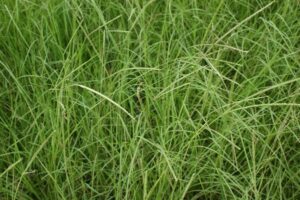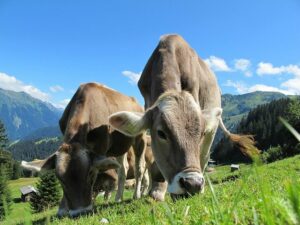The dry, light and acidic soils so common in Australia’s north pose a tricky proposition for land owners. They drain quickly, making it difficult for plant life to get the water it needs to establish itself, and without proper coverage the earth is extremely vulnerable to erosion. Land owners are caught between a rock and a hard place – finding ground cover that can cope with the conditions is challenging, and the flow-on effects of erosion can be diabolical.
What you need is a ground cover that can cope with extreme acidity, extreme drought and will happily continue to grow without needing to be molly-coddled. Many land owners also want something that can sustain horses and livestock in the hot northern Australian conditions.
McKays Pensacola Bahia Grass might well be the answer. A grass seed that ticks every one of these boxes, it’s a fantastic choice for any area that features soil that is dry, light and/or acidic.
Pros
McKays Pensacola Bahia Grass is a super flexible ground cover option. It can be used in a variety of ways; as a lawn, as a pasture, or simply for erosion control.
Pensacola Bahia deals excellently with tropical conditions – it is able to handle long dry spells with ease, and will also cope well with the deeply soaked soils that are part and parcel of a tropical wet season. For a tropical grass it’s also very shade tolerant, so will do well in areas that may be overgrown with trees and shrubs or bordered by any other structures.
It’s a competitive and aggressive grower, meaning it will usually overpower any weeds or unwanted growth that might invade your land. If you’re using Pensacola Bahia for pastures you can be sure that your animals are feeding on it rather than on a plant that may not be as nutritious.
As mentioned above, Pensacola Bahia will happily grow in soils that would traditionally be considered difficult to grow in, with acidity and quick drainage not severely affecting its health.
Speaking of grazing, it’s a grass with excellent tolerance to animals, as it’s able to repair itself quickly and efficiently. It’s a quick grower, and is able to be grazed upon heavily by livestock without being negatively affected. With Pensacola Bahia you can be sure that your animals will have a constant supply of feed throughout the year.
And on top of all that, Pensacola Bahia is just a really good looking grass! It features a fine, bright green blade that offers a stunning look to any area, whether it’s a paddock on the farm or a residential front yard.
Cons
Pensacola Bahia is a grass that’s more than happy to take care of itself but will grow extremely long if left unattended, so if it’s used for lawn a regular mow will be required. Its aggressive nature will also mean that you’ll find it spreading into surrounding areas, which may not be ideal in some situations. If you’re looking to contain your Pensacola then it’s wise to physically border the area.
While the grass loves the hot and humid conditions of the tropics, Pensacola doesn’t do well in the cold. The grass will be debilitated by frosts, so only sow the seed if you live in an area that is entirely frost free.
McKays’ Pensacola Bahia Grass Seed
McKays offer Pensacola Bahia Grass Seed in 5kg or 10kg, enough to cover areas of 500 and 1000 square metres respectively.
So, whether you’re using it as a tropical lawn or a pasture for livestock, Pensacola Bahia offers the sort of hardiness and adaptability that those in Australia’s tropical north desperately need. If you’ve got any other questions regarding McKays’ Pensacola Bahia grass seed, don’t hesitate to contact our friendly team.
Does perennial ryegrass come back every year?
Perennial ryegrass is a type of grass that does indeed come back every year. This is in contrast to annual ryegrass, which only lives for one growing season before dying off. Perennial ryegrass is a popular choice for lawns and turfgrass because it is very hardy and can withstand a lot of wear and tear. It is also relatively low-maintenance, requiring only occasional mowing and watering.
How do you care for perennial ryegrass?
Perennial ryegrass is a versatile and hardy grass that is easy to care for. It tolerates a wide range of soils and climates, and is relatively drought-resistant. However, like all grasses, it does require some basic maintenance in order to stay healthy and looking its best.
Mowing is the most important aspect of care for perennial ryegrass. It should be mowed regularly, at least once a week, to keep it from getting too tall. The height of the grass should be kept at around 3 inches. This will ensure that the grass stays dense and lush, and prevents it from developing bare patches.
Perennial ryegrass also needs to be fertilized periodically. A slow-release fertilizer should be applied every 6-8 weeks during the growing season. This will help the grass to maintain its green color and keep it from getting thin and weak.
Finally, perennial ryegrass needs to be watered regularly. It should be watered deeply and evenly, about 1 inch per week. This will help it to develop a deep root system and stay healthy during periods of drought.
How long does perennial ryegrass take to establish?
Perennial ryegrass is a type of grass that is often used for lawns, pastures, and other areas where a grassy surface is desired. It is a fast-growing grass that can establish itself quickly, often in as little as two weeks. Once established, it is a hardy grass that can tolerate a wide range of conditions, from drought to heavy traffic.
What time of year do you plant perennial ryegrass?
Perennial ryegrass is a cool-season grass, which means that it thrives in cooler temperatures and goes dormant in hot weather. In general, you should plant perennial ryegrass between Autumn and Spring, when the temperatures are cool. This gives the grass the best chance to establish itself.
Test
test



